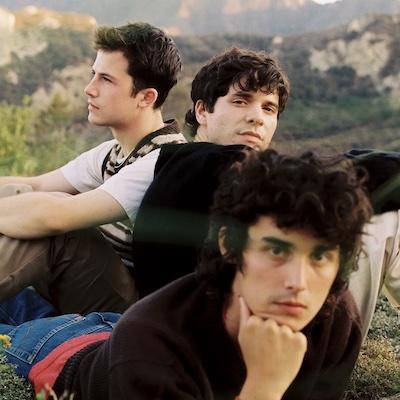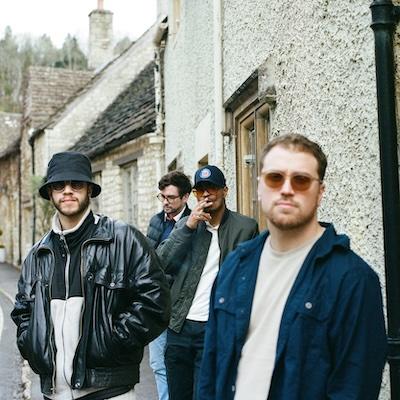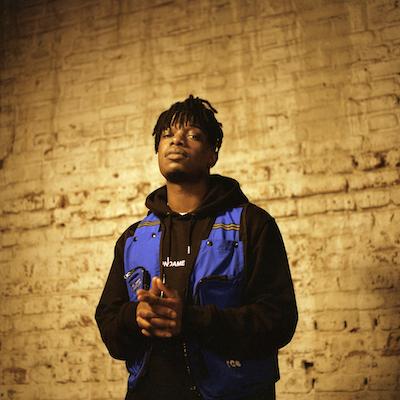Promote your Bossa Nova music to Rio de Janeiro's industry tastemakers
Connect with the authentic voices behind the timeless sound of Rio, from Ipanema to Copacabana and beyond
Why promote your Bossa Nova music with Groover
Genre-specific promotion strategy
Leverage our deep understanding of the Bossa Nova ecosystem in Rio. We connect you with professionals who appreciate the genre's distinctive blend of samba rhythms and cool jazz harmonies, ensuring your music reaches listeners who will truly appreciate its subtleties.
Guaranteed feedback from local experts
Every submission receives thoughtful critique from Rio-based curators who understand both traditional Bossa Nova sensibilities and contemporary innovations. Gain insights on your arrangements, Portuguese pronunciation, and how to authentically represent the Carioca spirit.
Gateway to Brazil's wider music scene
Use Bossa Nova as your entry point to explore connections with broader MPB (Música Popular Brasileira), samba, and other Brazilian styles. Expand your musical footprint from Rio's intimate listening rooms to national platforms and international audiences.
Reach 3000+ Bossa Nova music pros & curators
Peneira Musical
Media OutletBossa NovaChampion of Brazil's independent scene, amplifying local talent via discerning playlists and artist feedback across diverse digital platforms.Putumayo World Music
LabelAfrican MusicLegendary global label Putumayo curates joyful songs rooted in cultures around the world.AudioMaze
LabelBossa NovaAudiomaze is a globally-minded digital label championing boundary-crossing jazz and fusion, connecting far-flung artists with cosmopolitan audiences through savvy distribution and tailored promotion.Luis Bernal
Sync SupervisorLatin MusicLA-based sync agent championing Latin American and Caribbean sounds, connecting cutting-edge artists to film, TV, and commercial placements across the globe.La Chica Nueva
RadioLatin MusicEclectic radio tastemaker spotlighting the transnational currents of African-rooted music, bridging vintage highlife, Afrobeat, and contemporary global bass.
Break into the Bossa Nova scene in Rio de Janeiro
Connect with authentic Bossa Nova curators
Reach bloggers, playlist curators, and radio hosts who specialize in contemporary Bossa Nova and traditional Brazilian sounds. Get your music heard by the tastemakers who understand the subtle complexity and gentle sophistication that defines the genre.
Gain feedback from Rio's Music community
Receive thoughtful critiques from professionals who know the nuances of Bossa Nova. Understand how your composition balances harmony, rhythm, and lyrical elements in the tradition of Jobim and João Gilberto while maintaining your unique voice.
Build relationships in the birthplace of Bossa Nova
Establish meaningful connections in the city that gave birth to 'The Girl from Ipanema' and continues to nurture innovative Brazilian music. Position your work within the lineage of Rio's rich musical tradition while pushing the sound forward.
Trusted by
Rio's Bossa Nova tastemakers are waiting to hear your music
Connect with playlist curators, radio hosts, and venue programmers who celebrate the legacy of Jobim, Gilberto, and de Moraes while embracing fresh talent
Cantores Del Mundo
Eduardo Pastore
Mixeados
Sobreviva
Música Pavê
Revista Arte Brasileira
Alice Ribeiro - HatCat Marketing
Rádio Armazém
NOVA MPB FM
The znduring magic of Rio's Bossa Nova legacy
Born in the late 1950s in the affluent beachside neighborhoods of Rio de Janeiro, Bossa Nova emerged as Brazil's sophisticated musical response to cool jazz. Pioneered by João Gilberto, Antonio Carlos Jobim, and Vinicius de Moraes, the genre captivated global audiences with its gentle rhythms, complex harmonies, and poetic sensibility. 'The Girl from Ipanema,' perhaps the most famous Bossa Nova composition, captured the laid-back elegance of Rio's coastal lifestyle. Though its golden era is often considered the late 50s through the 60s, Bossa Nova's influence extends far beyond. The genre created a foundation for MPB (Música Popular Brasileira) and influenced artists like Caetano Veloso and Gilberto Gil. Contemporary Rio continues to honor this legacy through intimate performances in Copacabana and Ipanema venues, specialized radio programs, and a new generation of musicians who blend traditional Bossa Nova elements with modern sensibilities. Today, Rio's Bossa Nova scene balances reverence for tradition with forward-thinking approaches. From small gafieira dance halls to prestigious concert venues, the sound that once defined Brazilian cool continues to thrive in its birthplace, creating space for both purists and innovators alike.
More than 600,000 artists & pros use Groover to promote their music
Chosen by top artists
Join the community where leading artists promote their music and reach new fans worldwide.
 Parov Stelar Electro swing icon
Parov Stelar Electro swing icon Michael Bolton American artist
Michael Bolton American artist Miss Monique Producer & DJ
Miss Monique Producer & DJ Faux Real Indie pop duo
Faux Real Indie pop duo Wallows Indie rock band
Wallows Indie rock band Aloe Blacc American artist
Aloe Blacc American artist Passenger British songwriter
Passenger British songwriter New West Canadian collective
New West Canadian collective Chris de Sarandy British artist
Chris de Sarandy British artist Nico & Vinz Afrobeat pop duo
Nico & Vinz Afrobeat pop duo Haddaway Club hit legend
Haddaway Club hit legend Bonobo British producer
Bonobo British producer Far Caspian American artist
Far Caspian American artist Low Island UK band
Low Island UK band Monolink German producer
Monolink German producer La Femme French psych-punk band
La Femme French psych-punk band Emmrose American indie artist
Emmrose American indie artist The Supermen Lovers French touch producer
The Supermen Lovers French touch producer Tchami Producer & DJ
Tchami Producer & DJ Alvin Chris French rapper
Alvin Chris French rapper
Trusted by top labels
A diverse range of professionals trust Groover to showcase their artists and share fresh releases.
 Ninja Tune Electronic record label
Ninja Tune Electronic record label Secret City Records Quebec indie label
Secret City Records Quebec indie label V2 Records Label
V2 Records Label Dine Alone Records Indie Record Label
Dine Alone Records Indie Record Label Tomorrowland Music Electronic music label
Tomorrowland Music Electronic music label Tambourhinoceros Danish indie label
Tambourhinoceros Danish indie label Ba Da Bing! Records American record label
Ba Da Bing! Records American record label Scruff of the Neck Manchester label
Scruff of the Neck Manchester label Dance To The Radio Leeds record label
Dance To The Radio Leeds record label Because Music Record label
Because Music Record label Bright Antenna Records San Francisco label
Bright Antenna Records San Francisco label Kitsuné Musique Record label
Kitsuné Musique Record label Wagram Stories Berlin German label
Wagram Stories Berlin German label Roche Musique French house label
Roche Musique French house label Un Plan Simple Record label
Un Plan Simple Record label Sinnbus Records German record label
Sinnbus Records German record label Nine And A Half Dutch record label
Nine And A Half Dutch record label Roy Music French record label
Roy Music French record label Lisbon Lux Records Canadian label
Lisbon Lux Records Canadian label Ink Music Austrian label
Ink Music Austrian label Chinese Man Records French record label
Chinese Man Records French record label
Discover how Groover can help you accelerate your career
Connect with the right curators & industry pros to get real feedback, exposure, and career opportunities.
-
Promote your music
Promote your music: Learn morePitch your music to blogs, journalists & curators to land press, gigs & playlist spots.
-
Get featured on Spotify playlists
Get featured on Spotify playlists: Learn moreConnect with playlist curators, boost your streams, and grow your audience with expert feedback.
-
Find record labels looking for artists
Find record labels looking for artists: Learn moreGet heard by A&Rs, receive industry insights, and take the next big step in your career.
-
Get your music played on radio
Get your music played on radio : Learn moreReach new listeners, gain exposure, and grow your fanbase on trusted stations worldwide.
-
Find the right music manager
Find the right music manager: Learn moreGet expert support for bookings, strategy, and industry connections to level up your music.
-
Get your tracks in front of DJs
Get your tracks in front of DJs: Learn moreConnect with DJs looking for fresh music and see your sound reach new crowds.
Frequently asked questions
While authenticity is valued, singing in Portuguese isn't strictly necessary. Many Rio curators appreciate artists who respect the tradition while bringing their own perspective. That said, proper pronunciation in Portuguese-language tracks will be noted positively. Some artists successfully blend Portuguese and English or other languages in their compositions, honoring the tradition while making it accessible to wider audiences.
